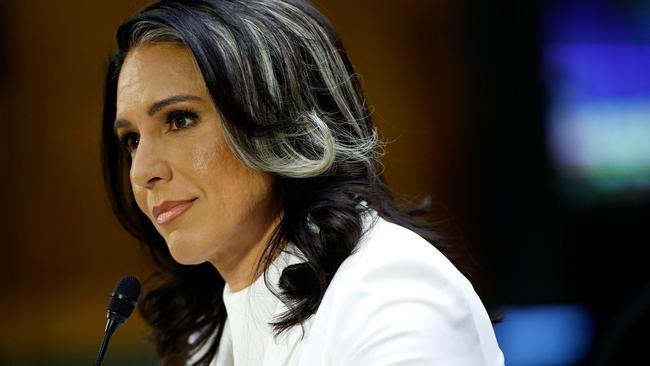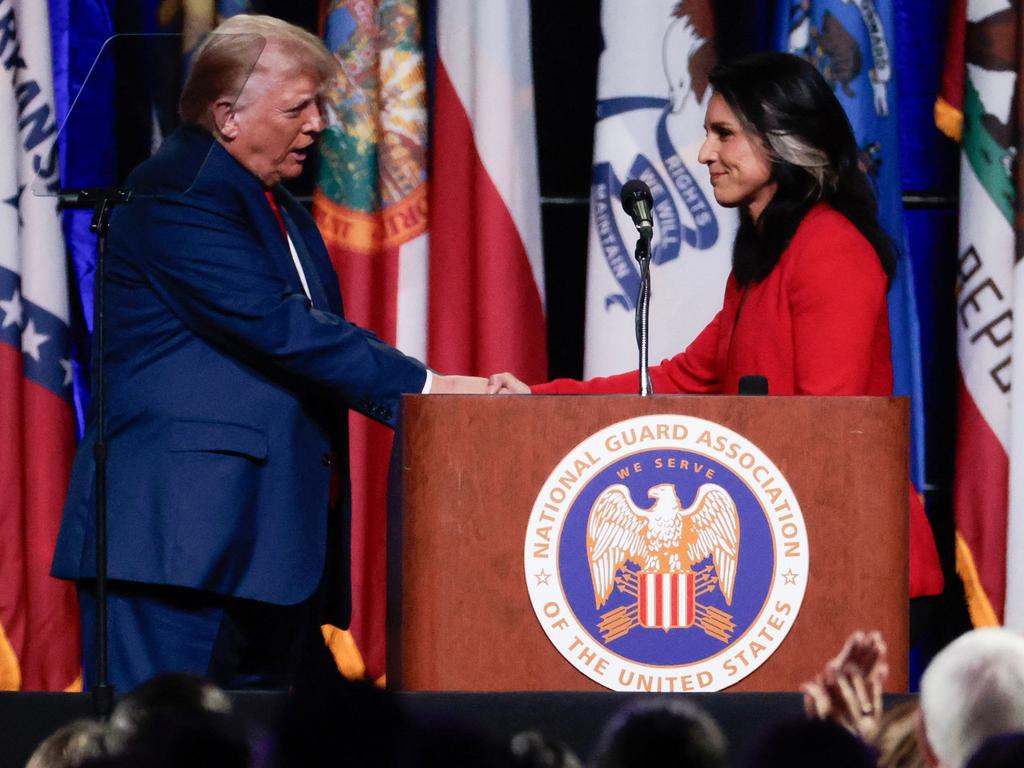Tulsi Gabbard wins committee vote in big step for intelligence nominee
Tulsi Gabbard’s controversial nomination to oversee the nation’s intelligence agencies was passed by 9 to 8 in a closed door vote.

The Senate Intelligence Committee narrowly advanced Tulsi Gabbard’s nomination to oversee the nation’s intelligence agencies, another step in President Trump’s effort to stock his second administration with loyal but sometimes unconventional cabinet appointments.
Gabbard, a combat veteran and former Democratic congresswoman from Hawaii, squeaked by in a closed-door vote. The tally was 9-8, along party lines. She has become a favourite among Trump-allied MAGA conservatives, and Republican senators have largely rallied behind her.
“I’m confident she will bring a fresh perspective to President Trump’s national security team and the intelligence community,” said Sen. Mike Rounds (R., S.D.).
Gabbard still needs to clear a full Senate vote to win confirmation, but the panel vote was seen as a key hurdle. The result showed several pivotal GOP lawmakers, including Sens. Susan Collins of Maine and Todd Young of Indiana, were on board with her nomination.
Trump’s pick for director of national intelligence overcame reservations among senators on the panel who were unimpressed by her knowledge of U.S. spying powers and concerned by her past comments that at times seemed to favour foreign leaders, including Russian President Vladimir Putin and former Syrian dictator Bashar al-Assad, over the judgments of the very agencies she had been tapped to lead. She attacked what she said were “lies and smears” about her record and views.
Most significantly, Gabbard appeared to satisfy disgruntled Republicans who were agitated by her refusal to firmly condemn former U.S. intelligence contractor Edward Snowden. During her confirmation hearing last week, Gabbard sought to distance herself from her prior statements about Snowden, including that he deserved a pardon, but refused to answer when multiple senators – Republican and Democrat – asked her if he was a traitor.
“Edward Snowden broke the law. I do not agree with or support all of the information and intelligence that he released, nor the way in which he did it,” Gabbard said. But she added he “released information that exposed egregious, illegal and unconstitutional programs.”
Snowden faces criminal charges in the U.S. for his leaks of a tranche of top-secret National Security Agency files to journalists that exposed secret surveillance programs more than a decade ago. His name was mentioned more than 50 times during Gabbard’s hearing.
Republicans narrowly control the Senate 53-47. Trump can afford to lose only three GOP votes for any of his nominees, if all Democrats are opposed. Vice President JD Vance can break any ties.
Multiple moderate Republicans sit on the intelligence committee, including Collins, who was one of three Republicans to vote against Defence Secretary Pete Hegseth.
In a statement Monday, however, Collins, an author of the 2004 legislation that created the national intelligence directorate, said that the agency had grown too large and expressed support for Gabbard, who, she said, shared her “vision of returning the agency to its intended size.” Collins said that Gabbard had addressed her concerns about Snowden during the committee’s closed-door hearing. “I look forward to working with Ms. Gabbard to strengthen our national security,” Collins said.
Young had sharply questioned Gabbard during the public hearing and was seen as another Republican who might have joined Democrats in voting against her. But on Tuesday morning, Young released a letter that he had received from Gabbard promising to work on preventing intelligence officials from making unauthorised disclosures, a commitment that Young had asked her to make.
Dow Jones




To join the conversation, please log in. Don't have an account? Register
Join the conversation, you are commenting as Logout